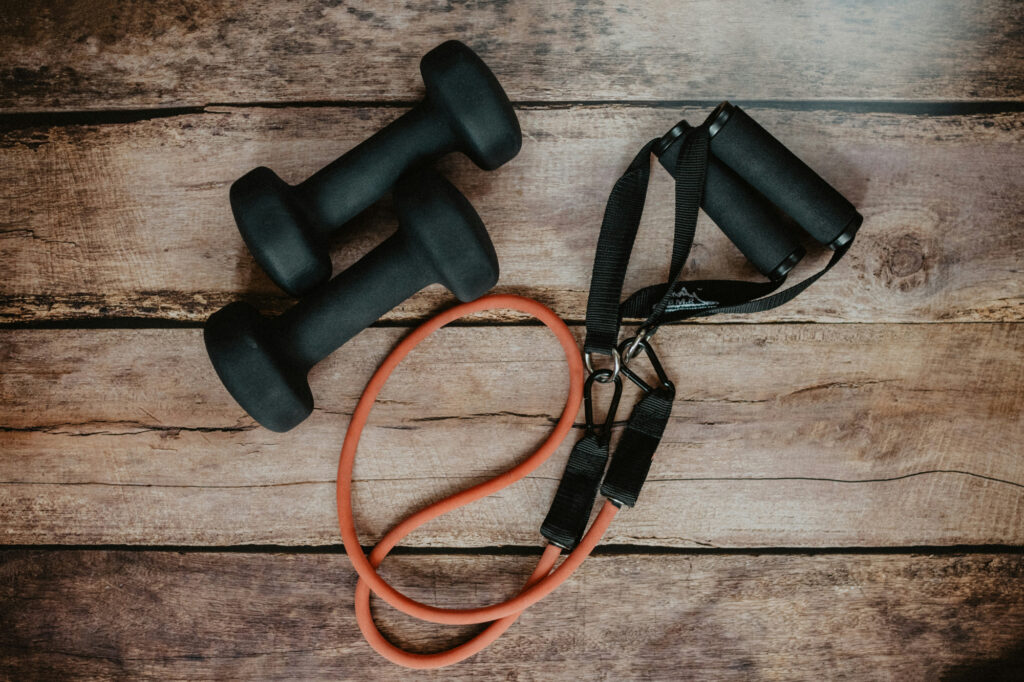Research suggests that athletes are less likely to catch a cold than other people due to greater physical activity causing their bodies to produce more immune cells. Because regular exercise helps improve the immune system, it is probable that it can also help guard against the life-threatening case of Omicron.
The menace of Coronavirus has reappeared in our life. According to sources, the new variant Omicron is somewhat less hazardous, but as the saying goes, ‘prevention is better than cure.’ So, without further ado, let’s get to work on strengthening our immune systems.
Can You Help in Boosting Your Immune System?
Overall, your immune system performs an excellent job of protecting you from disease-causing bacteria, viruses, and other pathogens. But occasionally, it fails: a pathogen permeates your body and makes you ill. Is it feasible to intervene and strengthen your immune system throughout this process?
Yes, regular exercise and a balanced nutritious diet, and enough sleep can help your immune system trigger a near-perfect immune response.
According to a recent review, moderate-intensity exercise is associated with decreased incidence of upper respiratory tract infections, which include viruses such as the flu and common cold1. For instance, a study of 1413 persons in China discovered that those who reported exercising at least three times per week lowered their chances of developing a cold by 26%2.
Moreover, another research of 390 adults revealed that those trained with an eight-week routine of moderate exercise reduced their risk of acute respiratory disease by 14% and their number of sick days by 23% compared to those who did not undergo it exercise training3.
Read on to learn how exercise can boost the immune system and help vaccines work better.
How the Immune System Functions?
To better understand how exercise benefits your immune system, let’s dive into how your immune system actually works.
The immune system defends your body against infection and is divided into two parts: innate and adaptive immunity. You are born with innate or natural immunity. Its purpose is to respond promptly to infection-causing pathogens (like toxins, bacteria, and viruses like COVID-19 and Omicron) that enter your body. Pathogen recognition molecules on your cells detect pathogens and signal the cell to produce messenger molecules such as cytokines and chemokines.
Cytokines and chemokines alert your innate immune system to the fact that something is wrong with your body. The pathogens (together with antigens, which are chemicals found on pathogen surfaces) are then broken down by your cells and presented to your B and T cells, triggering the adaptive immune response.
Antigen-presenting cells collect infections, break them down into antigens, and deliver them to the immune system. They cause B cells to create antibodies that can stop the infection and slow its spread in your body. They can also activate killer T cells, which are capable of locating and eliminating contaminated cells in your body.
When your body clears an infection, a fraction of B and T cells, known as memory cells, remains in your body. If you are exposed to the same pathogen again, these memory cells will swiftly activate and fight off the infection before it causes you to become ill.
Vaccines trick your systems into making these memory cells in order to protect you against future exposure to a true virus4.
How Exercise Can Boost the Immune System
Exercise can benefit your immune system in a variety of ways. It can boost blood flow, eliminate bacteria from your airways, create a temporary rise in body temperature that may be defensive, enhance antibodies to fight infection, and lower stress hormones.
Exercise causes the release of cytokines and chemokines. This release helps your immune system tune up to be more equipped to deal with an infection, allowing it to respond faster and more efficiently.
Exercise can also spontaneously adjust your immune system so that you don’t overreact to the virus. In other words, physical exercise helps your body stimulate the appropriate amount of immune response to successfully fight off the infection — rather than an overreactive immune response, which can lead to inflammation.
Omicron, like COVID-19, is an inflammatory virus that can cause fluid buildup in your lungs, tissue damage, and other symptoms. According to a recent study, physically active people were less likely to have major inflammatory reactions to COVID-19, leading to hospitalization and death5.
How Exercise Improves the Efficacy of Vaccinations
Vaccines, including the COVID-19 vaccines, instruct your immune system to produce antibodies the same way an infection does.
What is the significant difference? Vaccines are effective without making you sick. (You may have some side-effects after getting vaccinated, but they are natural signals that your body is developing immunity.) Most vaccinations protect humans from illness by inducing an antibody response; however, the quantity of antibodies produced in response to a vaccine varies from person to person.
Younger persons and those who are active and healthy are more likely to have a significant antibody response following vaccination. Their immune systems can respond to the vaccination more swiftly and effectively.
How Much Regular Exercise Is Sufficient to Boost the Immune System
As a result, exercise strengthens your immune system and improves the efficacy of vaccinations. Is there a method to calculate how much exercise is required to improve your immune system?
To boost your immune system, stick to the conventional guidelines of 150 minutes of moderate-intensity activity per week or 75 minutes of vigorous-intensity exercise per week. Those minutes should be divided in a way that fits your lifestyle and fitness level6.
The following are examples of a moderate program:
- Walking for 20 to 30 minutes every day
- Visiting the gym every other day
- Taking your children out bicycling a few times a week
- Playing golf on a regular basis
What’s more, overtraining or excessive activity may raise the risk of illness. In fact, recent research found that exercising for an extended period of time without adequate rest might reduce cellular immunity and increase vulnerability to infection. So, there’s no need to overdo it. Follow exercise rules and remember that sweating is excellent for your immune system and more.
The Bottom Line
Exercise is one of the elements of healthy living. Besides its other health benefits, it can also help boost your immune system and keep it healthy. Moreover, regular physical exercise improves the efficacy of vaccinations. During the third wave of a pandemic caused by the Omicron variant, the necessity to boost your natural defense system is even greater. Adding 150 minutes of moderate-intensity activity each week to your routine, in addition to eating healthily, can provide a significant boost to your immune system.
What’s more, you can add Immune Bounce supplement to your diet to give a boost to your immune system. Immune Bounce contains ten immune-boosting ingredients that may help strengthen your defense system by increasing immune cells and making immune responses more effective. Further, this supplement may reduce inflammation and reduce the duration of common colds and flu. In addition, it may help promote digestive health and reduce oxidative stress caused by free radicals.

 Underwear Model Ab Secrets
Underwear Model Ab Secrets 


